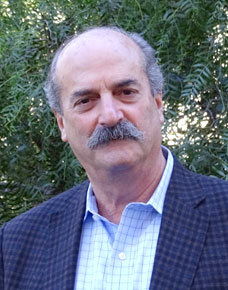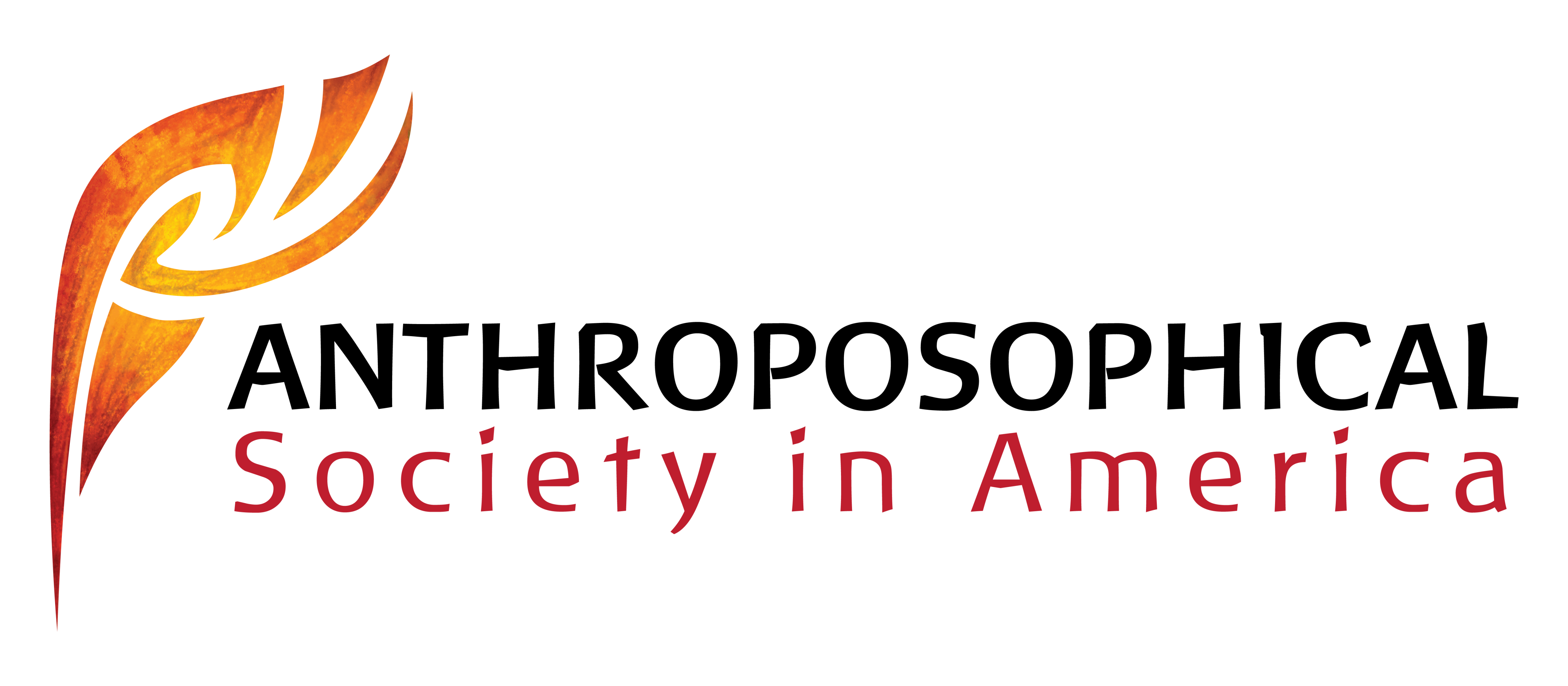From the General Secretary: “a cultural sea change afoot”
January 2020

Dear Members and Friends,
Welcome to the new year, new decade, and what the future will certainly ask of us—awakening and deepening community. It is highly significant and worth celebrating that nearly 900 people participated in the Society’s Holy Nights online program in closing out 2019 and ushering in 2020. Whether you participated online or not, I trust that your Holy Nights brought insights, comfort, and renewal in preparation for the full year ahead.
2020 will see a celebration of 100 years of Waldorf education in Chicago in June. This fête will be co-hosted by the Association of Waldorf Schools of North America, the Alliance for Public Waldorf Education, and the Waldorf Early Childhood Association of North America, an unprecedented collaboration. And as the Biodynamic Association prepares for its 100 years in 2024, all of the biodynamic organizations have come together to consider what kind of structure would best support all of them working together to further the field of Biodynamics. These are but two emerging examples of new ways of coming together across past differences and functions in the practical work of the anthroposophical movement. And we as a Society are working towards 100 years after the re-founding of the Anthroposophical Society in 1923-24 with changes in how we reach members and create opportunities for engagement, both in regional conferences, national topical conferences, and online gatherings across the US.
There is a cultural sea change afoot, even in the face of conflict and violence, a highly politicized environment, and an uncertain economy. There is a palpable search for community, for mutual support, for deep listening, an echoing of values, and for reconsidering how working consciously with inclusion and justice might speak to the next generation of Waldorf teachers and biodynamic farmers to support the growing momentum of interest in the work of the Society and anthroposophy. At the same time, there are real success-generated challenges if we are to maintain anthroposophy as a wellspring.
Bear with me as I share a brief story that exemplifies a success-generated challenge and the issues that are coming toward us from the future. At a recent Waldorf schools conference, I was honored to co-lead “Finding Our Voice” sessions. These workshops are designed to support people working in anthroposophical organizations who have a public-facing role, to help them become more comfortable speaking about Rudolf Steiner and anthroposophy. There was quite a bit of learning and conversation over the three sessions and at the end when time ran out, we gathered the remaining questions in the room without responding to them. One participant asked: “We have Waldorf education, why do we need anthroposophy and Rudolf Steiner?” Several nodding heads affirmed the resonance of the question.
Needless to say, I was a bit taken aback by the question, especially as the facilitator (and General Secretary). At first, I thought: how is it even possible to ask such a question? Then I immediately realized just how important the question is for understanding where we are as a movement, at what precipice, with what risk. The question is definitely an indicator of Waldorf education’s success in reaching so many families that it has developed an identity as separate from anthroposophy. The question is an indicator of how the practical work, as it moves further out in service to the world, can become (or is becoming) disconnected from the wellspring. This is a rightful challenge in many ways, a natural consequence of the need for and growth of Waldorf education.
A most extraordinary, brilliant, and breathtaking moment arose just following the close of the workshop. The reality of the question asked was still reverberating and generating conversation. One participant said: “When you have a garden, then cut a beautiful flower and put it in a vase, it will look and smell beautiful for a while. But then it will wilt and find its way to the compost. The uncut flowers remaining in the garden continue to flourish.” And then came the breathtaking part. She then said: “No roots, no renewal.” It was a powerful, essentialized realization, and remains clear in my mind even months later. “No roots, no renewal” is so relevant for all aspects of anthroposophy and its practical fields. In some ways it echoes the concept that the more broadly we reach into the world, the more we need to deepen our inner knowledge. This is really the primary approach to sustaining the anthroposophical-spiritual integrity of the good and healing work that anthroposophy and its practitioners have to offer the world—after all, in the context of “no roots, no renewal,” we are the soil.
This is a picture of the work we need to take up as a Society as members across the country: interest in each other and our local organizations, be they branches, Waldorf schools, biodynamic farms, arts organizations, medical clinics, or other social service efforts. And equally important: asking how we can be of service to others will raise awareness and move the impulse of engagement toward healing and community building. No matter the challenges, remaining inspired by the endowment of wisdom brought to us by Rudolf Steiner is a support as we meet and open ourselves to others’ realities. The guidepost here is deep listening with absolute respect for each other’s freedom and dignity. This is how spirit shows up in daily relational life.
Some of you may be familiar with Rudolf Steiner’s call for faithfulness as a practice. It is not the typical view of blind faithfulness with its presumed aspect of followership, but rather a more conscious and intentional faithfulness that when practiced can move us through misunderstanding of and even conflict with others. It is a most profound social practice and will serve us well as we take up the call of the year and the future.
This is Rudolf Steiner speaking:
Create for yourself a new, indomitable perception of faithfulness. What is usually called faithfulness passes so quickly. Let this be your faithfulness:
You will experience moments—fleeting moments—with the other person.
The human being will appear to you then as if filled, irradiated, with the archetype of their spirit. And then there may be, indeed will be, other moments, long periods of time, when human beings are obscured. But you will learn to say to yourself at such times: “The spirit makes me strong. I remember the archetype. I saw it once. No illusion, no deception, shall rob me of it.”
Always struggle for the image that you saw. This struggle is faithfulness. Striving for faithfulness in this way, we shall be close to one another, as if endowed with the protective powers of angels.
Wishing you a fulfilling 2020 and inviting you to participate in as many of the Society’s diverse activities as serve you, and in turn to encourage you to reach out and serve others. It is through warm and interested human relationships that the gifts of anthroposophy will circulate as much needed social currency.
John Bloom
General Secretary
Citation:
Rudolf Steiner, Sprueche, Dichtungen, Mantren, Ergaenzungband, GA 40a (Dornach, Switzerland: Rudolf Steiner Verlag, 2000), p.286. As cited in Arthur Zajonc, Meditation as Contemplative Inquiry: When Knowing Becomes Love, (Great Barrington, MA: Lindisfarne Books, 2009) p.78

From the Philippines, as an American here for 30 years, and 3 days since the Taal Volcano Eruption 80km South of Manila, Thank you, Gen Sec John Bloom!
We have our AGM on Saturday and I will share with the Anthroposophical Group PH your ‘No Roots, NO Renewal’ message. When we began in 1987 in PH.. 33 years ago we wanted to to potentize the soil with the mother substance of Anthroposophia.. The new gen wants to see the work manifesting and leaders who walk the talk… I’m glad to report after our Michaelmas Conference 9/28,29/19 AGP conference, young people have joined the AGP & several members stepped up to join the School of Spiritual Science!
Faith, Hope, Love never grow Old!
Warm Greetings from Manila!
Kathryn Carpenter Perlas
Thank you, Kathryn! Faith, Hope Love Never Grow Old…a great slogan for the new decade.
With appreciation for your work in the world,
Laura Scappaticci
Director of Programs, Anthroposophical Society in America
This is a wonderful message. A a bee steward who follows biodynamic methods I learn every day of new things. Your no roots -no renewal message really hits home. Thank you!
Jennifer Scott